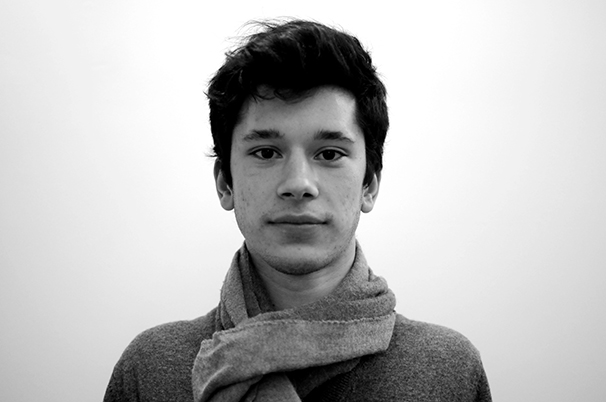Use of the word gentrification has become taboo in New York City. A more nuanced analysis of the effects of gentrification, however, reveals a less critical judgment of its merits. Gentrification, like all agents of change, does much good, most of which counteracts the harm done to a neighborhood’s original residents. Director Spike Lee’s impassioned speech on the ills of gentrification, specifically as it has altered his old neighborhood of Fort Greene, has not helped the conversation on gentrification escape its one-sidedness.
How would you feel about selling your house in Fort Greene that your grandparents purchased decades ago for $60,000? And if I gave you a million dollars? This is a question that many homeowners of gentrifying neighborhoods may be asking themselves. Families stand to benefit from selling their homes — sometimes, for more than a dozen times the original price — so they often do. If they did not profit from the transaction, they would not complete it. Furthermore, individuals who choose not to sell receive advantages inherent to gentrified areas: crime rates are low, drugs are scarce, public schools perform well and streets are clean.
Conversely, gentrification hurts renters, who are hit with drastically increased rents that they are unable to afford, often forced to relocate to a cheaper neighborhood. Compared to homeowners, tenants face the negative costs of gentrification — relocating — without obtaining the benefits — potentially $940,000 in profits. Recently, city governments have attempted to help renters affected by gentrification by freezing rising property taxes. But more can be done. The example set by renters in Chinatown in 2005 who successfully organized a union in an attempt to soften the blow of gentrification is a thoughtful approach to the problem.
Rhetorical arguments that mask the costs and benefits of gentrification echo those made by Lee. While visiting the Pratt Institute, Lee was asked by an audience member about the positive side of gentrification, a question to which he gave no substantive reply. Lee’s speech was filled with obscenities and interesting jargon, such as “Christopher Columbus syndrome” — hip, wealthy Brooklyn residents who displace neighborhood natives. While many of his arguments were undermined by logical incoherence, the majority of them were personal romanticizations of a character-filled past, similar to the one he depicts in his movie “Do the Right Thing,” that do little to contribute to the productive conversation on gentrification. Still, Lee did not address the elephant in the room: his Upper East Side apartment had been put on the market for $32 million earlier this year. Neighborhoods evolve and gentrification is inevitable, so change must be analyzed through a lens that fairly considers both the advantages and disadvantages of progress.
A version of this article appeared in the Thursday, April 3 print edition. Vittorio Bisin is a staff columnist. Vittorio’s Razor is published every Thursday. Email him at [email protected].
























































































































































Fanon II • Apr 3, 2014 at 6:41 pm
Colonizers apologizing for colonizers I suppose. Let us base our criticism upon Spike Lee through ad hominem’s yet disregard that the people in these areas did not ask for ‘improvement’ via displacement. The reason drugs, crime, and problems where in less “nice” parts of town is because of government displacement, racial intimidation, and faulty public housing being purposely and consciously placed in these areas. http://www.thedailybeast.com/articles/2014/03/13/how-we-built-the-ghettos.html.
Let’s forget as well the structure of the Political Economy and whom favors whom, it is hard to have a balanced conversation where the balance favors those who have very heavily over those who have not.
nt • Apr 3, 2014 at 4:40 pm
i bet the author of this article’s father makes 6 figures .
mark • Apr 3, 2014 at 3:27 pm
Considering both sides (actually, all sides! why does it have to be two?) of an argument/story is always good practice – invitation very well taken!
Still, it does seem that Lee acknowledges your point on the benefits of gentrification, but adds that these are, considering the number of people actually having access to them, quite low:
“Yes, but here’s a thing to deflate your answer. The people you talked about are not a great number. Number one, a lot of these people have not kept their taxes so they can’t afford to keep the house. Number two, when these real estate guys come around and open a suitcase with a bunch of money they’re gonna sell it. I mean these people you’re talking about are elderly. And they get the money, their money goes a lot further down south. Black people by droves in New York City, it’s called reverse migration. They’re moving to Atlanta, they’re moving to North Carolina. They got a house, they got a lawn, they got a backyard, they have less taxes… New York City’s a hard place and so if you’ve worked all your life and you’re retired, they’re selling their houses and I don’t blame them. I can’t say to them, ‘you can’t sell your house’. They’re like, ‘Fuck you, Spike’.”
Also, you left out almost entirely Lee’s observations regarding the delivery of basic services: “And why does it take an influx of white New Yorkers in the south Bronx, in Harlem, in Bed Stuy, in Crown Heights for the facilities to get better?”
Of course, merely observing that facilities are getting better with an ‘influx of white people’ does not make the case against gentrification (if anything, it suggests the importance of trying to create more integrated neighborhoods, ‘gentrified’ or not), but it does explain, I think, why a black guy from a rapidly gentrifying block may not see the benefits coming his way (if they come at all) quite so favorably, as you would see to suggest.
The larger question one should ask, then, is: how’s New York (or other major american cities) doing in terms of segregation of neighborhoods? Are things getting better or worse? Is gentrification helping or hindering integration?